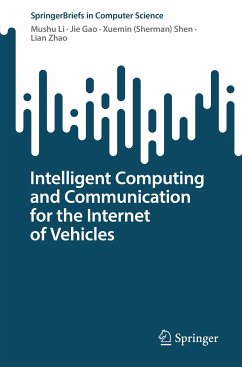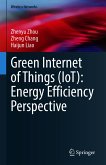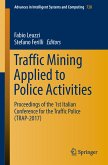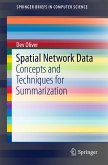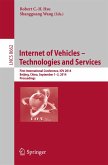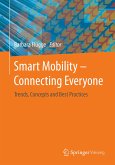This book investigates intelligent network resource management for IoV, with the objective of maximizing the communication and computing performance of vehicle users. Focusing on two representative use cases in IoV, i.e., safety message broadcast and autonomous driving, the authors propose link-layer protocol design and application-layer computing task scheduling to achieve the objective given the unique characteristics and requirements of IoV. In particular, this book illustrates the challenges of resource management for IoV due to network dynamics, such as time-varying traffic intensity and vehicle mobility, and presents intelligent resource management solutions to adapt to the network dynamics. The Internet of Vehicles (IoV) enables vehicle-to-everything connectivity and supports a variety of applications for vehicles on the road
Intelligent resource management is critical for satisfying demanding communication and computing requirements on IoV, while the highly dynamic network environments pose challenges to the design of resource management schemes. This book provides insights into the significance of adaptive resource management in improving the performance of IoV. The customized communication protocol and computing scheduling scheme are designed accordingly by taking the network dynamics information as an integral design factor. Moreover, the decentralized designs of the proposed solutions guarantee low signaling overhead and high scalability.
A comprehensive literature review summarizing recent resource management schemes in IoV, followed by the customized design of communication and computing solutions for the two IoV use cases is included which can serve as a useful reference for professionals from both academia and industry in the area of IoV and resource management. Researchers working within this field and computer science and electrical engineering students will find this book useful as well.
Intelligent resource management is critical for satisfying demanding communication and computing requirements on IoV, while the highly dynamic network environments pose challenges to the design of resource management schemes. This book provides insights into the significance of adaptive resource management in improving the performance of IoV. The customized communication protocol and computing scheduling scheme are designed accordingly by taking the network dynamics information as an integral design factor. Moreover, the decentralized designs of the proposed solutions guarantee low signaling overhead and high scalability.
A comprehensive literature review summarizing recent resource management schemes in IoV, followed by the customized design of communication and computing solutions for the two IoV use cases is included which can serve as a useful reference for professionals from both academia and industry in the area of IoV and resource management. Researchers working within this field and computer science and electrical engineering students will find this book useful as well.
Dieser Download kann aus rechtlichen Gründen nur mit Rechnungsadresse in A, B, BG, CY, CZ, D, DK, EW, E, FIN, F, GR, HR, H, IRL, I, LT, L, LR, M, NL, PL, P, R, S, SLO, SK ausgeliefert werden.
Es gelten unsere Allgemeinen Geschäftsbedingungen: www.buecher.de/agb
Impressum
www.buecher.de ist ein Internetauftritt der buecher.de internetstores GmbH
Geschäftsführung: Monica Sawhney | Roland Kölbl | Günter Hilger
Sitz der Gesellschaft: Batheyer Straße 115 - 117, 58099 Hagen
Postanschrift: Bürgermeister-Wegele-Str. 12, 86167 Augsburg
Amtsgericht Hagen HRB 13257
Steuernummer: 321/5800/1497
USt-IdNr: DE450055826
Bitte wählen Sie Ihr Anliegen aus.
Rechnungen
Retourenschein anfordern
Bestellstatus
Storno

